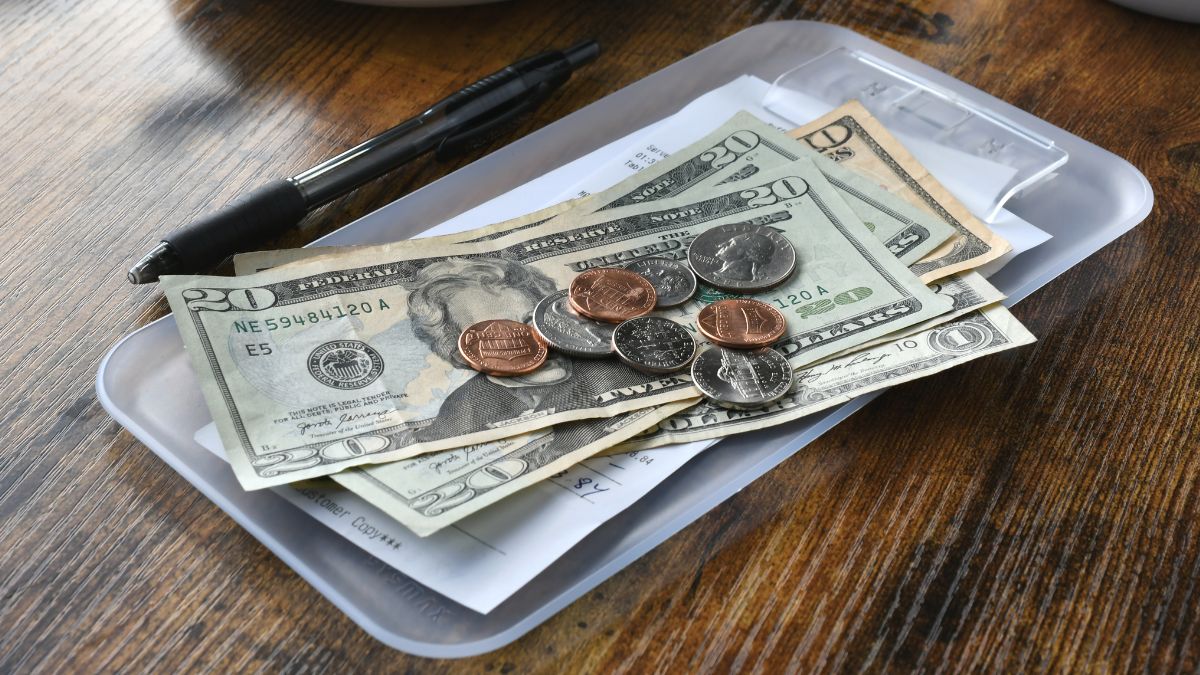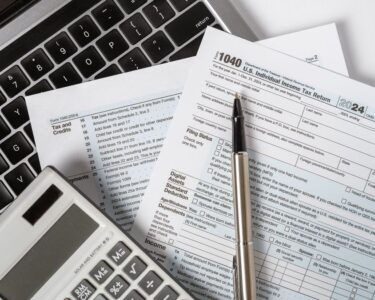Earlier this year, President Donald Trump announced that he would be creating a No Tax on Tips Act. It was part of his One Big Beautiful Bill, which was signed on July 4, and allowed employees to deduct up to $25,000 of their tip money from their yearly taxes, helping to reduce their overall taxable income and lower the amount of federal income tax they owe. Since that signing, though, there was no word on which jobs would qualify for this deduction—until now.
Earlier this week, several news outlets reported which jobs are eligible for the No Tax on Tips Act. We break it all down for you, including what to do if you receive tips but aren’t on the list, below.
What is the No Tax on Tips Act?
On Monday, September 1, Treasury Secretary Scott Bessent sat down with Axios to discuss which jobs would benefit from the No Tax on Tips Act this year. The act, which is expected to last until 2028, is supposed to help middle-class employees take home as much income as they can.
The list is broken down into eight sections—beverage and food service, entertainment and events, hospitality and guest services, home services, personal services, personal appearance and wellness, recreation and instruction and transportation and delivery—and from there, Bessent shared which jobs in each category qualify. You can view them all below.
Beverage and food service:
- Wait staff
- Fast food and counter workers
- Chefs and cooks
- Bakers
- Food preparation workers
- Bartenders
- Bartender helper and dining room and cafeteria attendants
- Food Servers, non-restaurant
- Dishwashers
- Host staff, restaurant, lounge and coffee shop
Entertainment and events:
- Gambling dealers
- Gambling cage workers
- Gambling and sports book writers and runners
- Gambling change persons and booth cashiers
- Musicians and singers
- Entertainers & performers
- Digital content creators
- Dancers
- Disc jockeys (Except radio)
- Ushers, lobby attendants, and ticket takers
- Locker room, coatroom and dressing room attendants
Hospitality and guest services
- Hotel, motel and resort desk clerks
- Concierges
- Baggage porters and bellhops
- Maids and housekeeping cleaners

Home services
- Roadside assistance workers
- Locksmiths
- Home cleaning service workers
- Home maintenance and repair workers
- Home electricians
- Home heating/Air conditioning mechanics and installers
- Home landscaping and groundskeeping workers
- Home appliance installers and repairers
- Home plumbers
Personal services
- Personal care and service workers
- Tutors
- Private event planners
- Private event videographers
- Private event and portrait photographers
- Event officiants
- Pet caretakers
- Nannies and babysitters
Personal appearance and wellness
- Barbers, hairdressers, hairstylists and cosmetologists
- Shampooers
- Manicurists and pedicurists
- Skincare specialists
- Massage therapists
- Eyebrow threading and waxing technicians
- Makeup artists
- Tailors
- Shoe and leather workers and repairers
- Exercise trainers and group fitness instructors
- Tattoo artists and piercers
Recreation and instruction
- Self-enrichment teachers
- Travel guides
- Recreational and tour pilots
- Tour guides and escorts
- Golf caddies
- Sports and recreation instructors
Transportation and delivery
- Parking and valet attendants
- Taxi and rideshare drivers and chauffeurs
- Shuttle drivers
- Rickshaw, pedicab, and carriage drivers
- Water taxi operators and charter boat workers
- Private and charter bus drivers
- Goods delivery people
- Personal vehicle and equipment cleaners
- Home movers
If your job falls under one of those categories, you are eligible to deduct up to $25,000 in tipped income between now and 2028. The tips that qualify for this deduction are “voluntary cash or charged tips received from customers or through tip sharing,” according to the Internal Revenue Service (IRS). They also shared that “Deduction phases out for taxpayers with modified adjusted gross income over $150,000 ($300,000 for joint filers).”
What to do if your job isn’t on the No Tax on Tips list

If you are a worker who receives tips at your job but doesn’t qualify for the No Tax on Tips Act, the rules for you don’t change that much. You are still required to report any tips on your taxes and are advised to keep a log of the cash and card tips that you receive throughout the year.
The IRS states: “Your employer can use a tip rate lower than 8 percent (but not lower than 2 percent) to figure allocated tips only if the IRS approves the lower rate,” which helps determine how much you are taxed. However, this does not eliminate the deductions; it just minimizes them.
The IRS statement continues: “Either the employer or the employees can request approval of a lower rate by filing a petition with the IRS. The petition must include specific information about the establishment that will justify the lower rate. A user fee must be paid with the petition…Employees filing the petition must promptly notify the employer, and the employer must promptly give the IRS a copy of all Forms 8027, Employer’s Annual Information Return of Tip Income and Allocated Tips, filed for the establishment for the previous 3 years.”
For more information on this, the IRS recommends looking at the “Allocation of Tips in the Instructions for Form 8027.”






